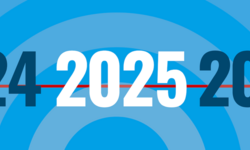
Effects of the War in Ukraine on the Open Internet
As internet activists who work to promote a free and open internet, we are watching the Russian war of aggression against Ukraine and the reactions around the world very closely. A free and open internet essentially allows a global exchange between all people, regardless of national borders, ideologies, social position or education. This direct cultural exchange fosters peace, but is undermined by a trend towards isolation that can be observed in China for instance. In Russia, freedom of the press and freedom of opinion have also deteriorated for many years. Sadly, this development has been exacerbated in the current conflict, with ever-increasing internet censorship, brutal restrictions of the freedom of assembly, and draconian censorship laws against independent reporting on the unprovoked war of aggression waged by Russia.
In Russia, the only independent news sources are now often accessible only via the internet or even via social networks. Given this situation, isolating Russia from the internet would be a very dangerous measure that would mainly hurt people in the country, whose protest against Vladimir Putin may well be the only way out of this crisis. Cutting off the people of Russia from independent news sources prolongs the conflict and hurts the peace movement in the country. In addition, shutting Russia out of independent communication networks like Signal would endanger the citizens of Russia.
Security authorities in Russia have started searching the mobile phones of people in the streets. Messenger services like Signal have a crucial feature that automatically deletes messages after a short time. In this situation, the right messenger and sufficient skills of digital self-defense can be critical for one’s safety.
A completely separate Russian internet along the lines of the Chinese internet does not seem very realistic in the short term. It would mean that Russia would give up the fundamental ideas of the free internet: global reach and decentralization.
The recently much-debated announcements by the Russian media regulator Roskomnadzor could also be interpreted as a call on Russian website operators to prepare for future Western sanctions. It is essential to avoid cutting off the Russian population even further from independent reporting on Vladimir Putin’s war, which people in Russia can currently access only through the internet and anonymisation networks like Tor. History has sadly shown us that whenever access to the internet is curtailed, the likelihood of human rights violations increases. Facebook and Twitter have already been blocked in Russia. Wikipedia is under increasing pressure for providing independent information on the Russian war of aggression. Anonymisation technologies like Tor are therefore essential for the population to circumvent the censorship of the Russian regime. It is all the more disconcerting that the blocking of Russia Today by the EU is apparently not solely aimed at internet providers and platforms like YouTube, but also targets the anonymisation service Tor (see Article 12 of Council Regulation (EU) 2022/350).
Since you're here
… we have a small favour to ask. You want to keep a close eye on the government? You want to stay up-to-date on surveillance, privacy, net neutrality, and all matters related to your fundamental rights on the internet? Subscribe to our newsletter and approximately once a month, we will send you a message (in German) about everything that happens around digital policy in Austria and in Europe, about our actions, legal analyses and position papers.
Together, we defend our fundamental rights in the digital age – because civil society works! Stay informed!







